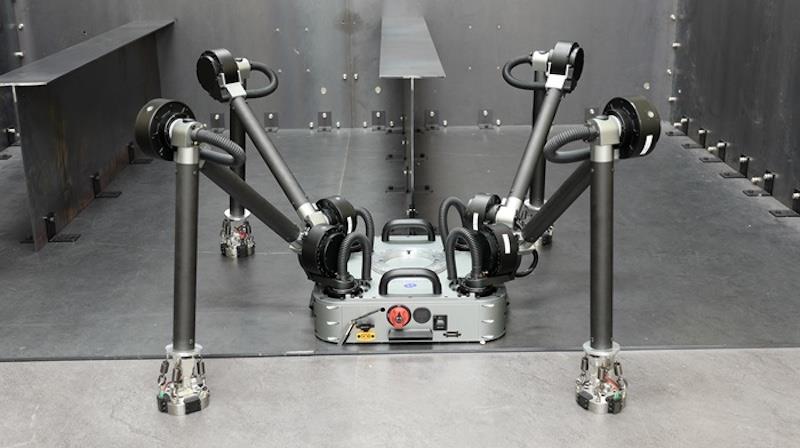
Samsung Tests KAIST Spinoff Diden Robotics' Walking Robot For Shipyard Welding
September 30, 2025 by David Edwards
Samsung Heavy Industries has carried out successful trials of a new industrial walking robot designed for welding and inspection on ships, marking a step toward wider automation in one of South Korea's most labor-intensive industries.
The technology comes from Diden Robotics , a startup founded in 2024 by alumni of the Korea Advanced Institute of Science and Technology 's (KAIST) Hu-bo Lab.
Its quadrupedal robot, known as Diden 30, uses magnetic feet and autonomous navigation to move across steel walls and ceilings, and has demonstrated the ability to cross shipyard structures such as longitudinal stiffeners.
In September, the robot completed welding tests on blocks under construction at Samsung's shipyard, a milestone that the company says validates its potential for real industrial deployment.
Diden Robotics is working closely with other major shipbuilders – including HD Hyundai Samho, Hanwha Ocean, and HD Korea Shipbuilding & Offshore Engineering – to customize the system for different yard environments.
The goal is to begin deploying the robots for welding, inspection, and painting tasks from 2026.
Joon-Ha Kim, CEO of Diden Robotics, says:“Our successful tests at the Samsung Heavy Industries site proved the practicality and stability of our technology. We will establish ourselves as a leading company in solving labor shortages and driving automation in the shipbuilding industry.”
Beyond quadrupeds, the company is developing a bipedal walking robot, Diden Walker, targeted for prototype completion in late 2025, with future applications in confined shipyard spaces.
Both robots are trained using the company's proprietary“Physical AI” platform, Diden World, which applies reinforcement learning in virtual simulations before deploying skills in the field.
Diden's progress is part of a broader wave of KAIST robotics spinoffs moving into commercialization. Sister startup Eurobotics recently drew attention with a humanoid robot walking unaided through the crowded streets of Seoul's Gangnam district, demonstrating navigation without external sensors.
KAIST president Kwang Hyung Lee said the startups show how academic research can be rapidly translated into industrial innovation, with shipbuilding now among the first sectors to benefit.
Legal Disclaimer:
MENAFN provides the
information “as is” without warranty of any kind. We do not accept
any responsibility or liability for the accuracy, content, images,
videos, licenses, completeness, legality, or reliability of the information
contained in this article. If you have any complaints or copyright
issues related to this article, kindly contact the provider above.

















Comments
No comment